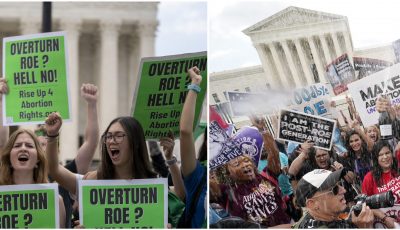NMI Supreme Court vacates trial court DNA order
On Dec. 21, 2017, the Supreme Court issued its decision in Nevada D.H.H.S. Division of Welfare v. Raymond Lizama, 2017 MP 16. The high court vacated the trial court’s order for DNA testing.
The underlying case arose from Nevada Department of Health and Human Services Welfare Division and Patricia Taisague’s complaint to enforce a Nevada judgment and order finding that Raymond Lizama was the father of a minor child and ordering him to pay child support.
Lizama asserted a statutory non-paternity defense under the Uniform Reciprocal Enforcement of Support Act. Following Lizama’s motion, the trial court ordered a DNA test to determine paternity.
Taisague appealed the order, requesting the Supreme Court to vacate the DNA order and instruct the trial court to enforce the Nevada order.
The issue on appeal was, initially, whether under CNMI law and in light of the federal Full Faith & Credit for Child Support Orders Act, a party could seek to have a new determination of paternity completed when such a determination has already been decided in another state’s court. However, since Taisague appealed, the Commonwealth Legislature enacted the Uniform Interstate Family Support Act. UIFSA replaced URESA, the act under which the court issued the DNA order. The high court therefore considered whether UIFSA applied retroactively to the appeal before it and, if so, whether the trial court’s DNA order was valid under the new law.
The high court first considered whether it had jurisdiction to hear the appeal.
The high court determined that although the DNA order was not a final order, the Supreme Court could consider the appeal pursuant to the collateral order doctrine, a doctrine which allows an appellate court to consider an appeal when the order addresses a separate but important issue that would otherwise be unreviewable. The high court then considered whether UIFSA applied to the appeal.
Looking to the plain language of the statute, the high court determined the Legislature did intend the law to apply retroactively to all pending actions, including Taisague’s appeal. Because the intervening law eliminated the defense of non-paternity and did not affect Lizama’s substantive rights, the high court vacated the DNA order and remanded the case to the trial court.
The high court’s full opinion is available at http://www.cnmilaw.org/supreme17.html
For further information, contact the Supreme Court at 236-9715. (PR)



























